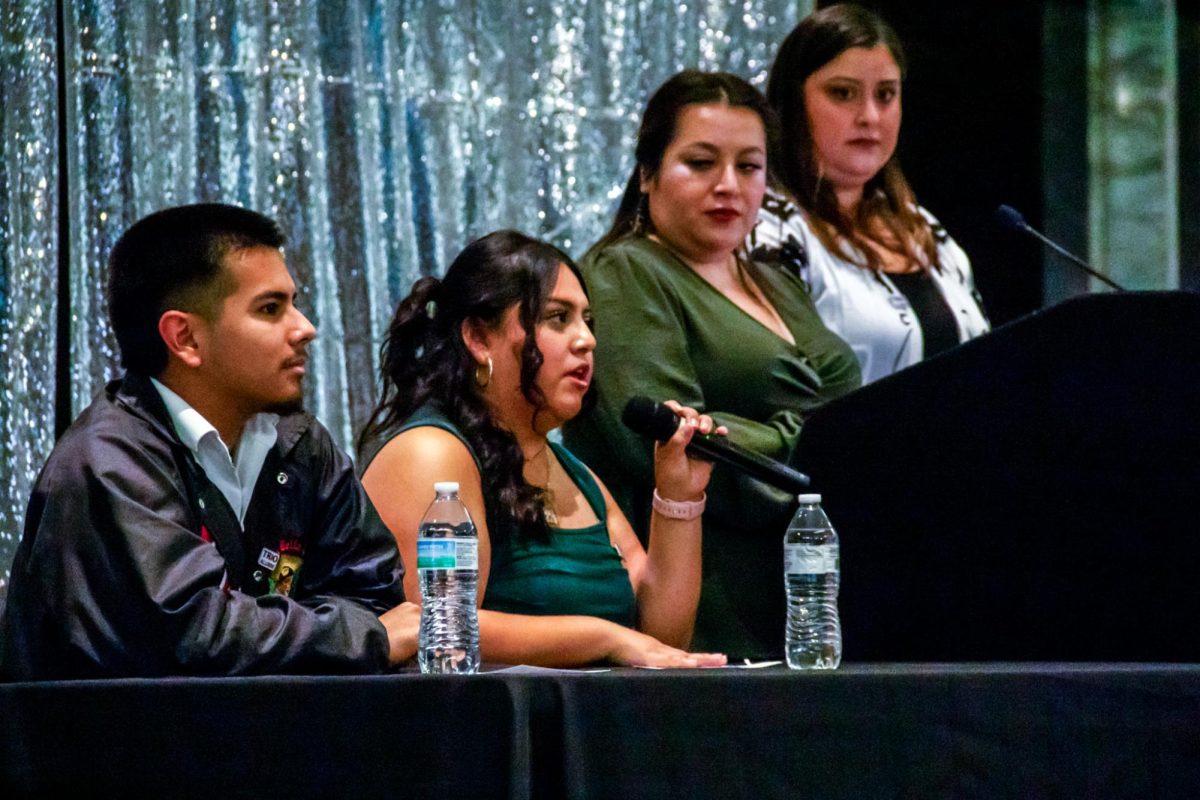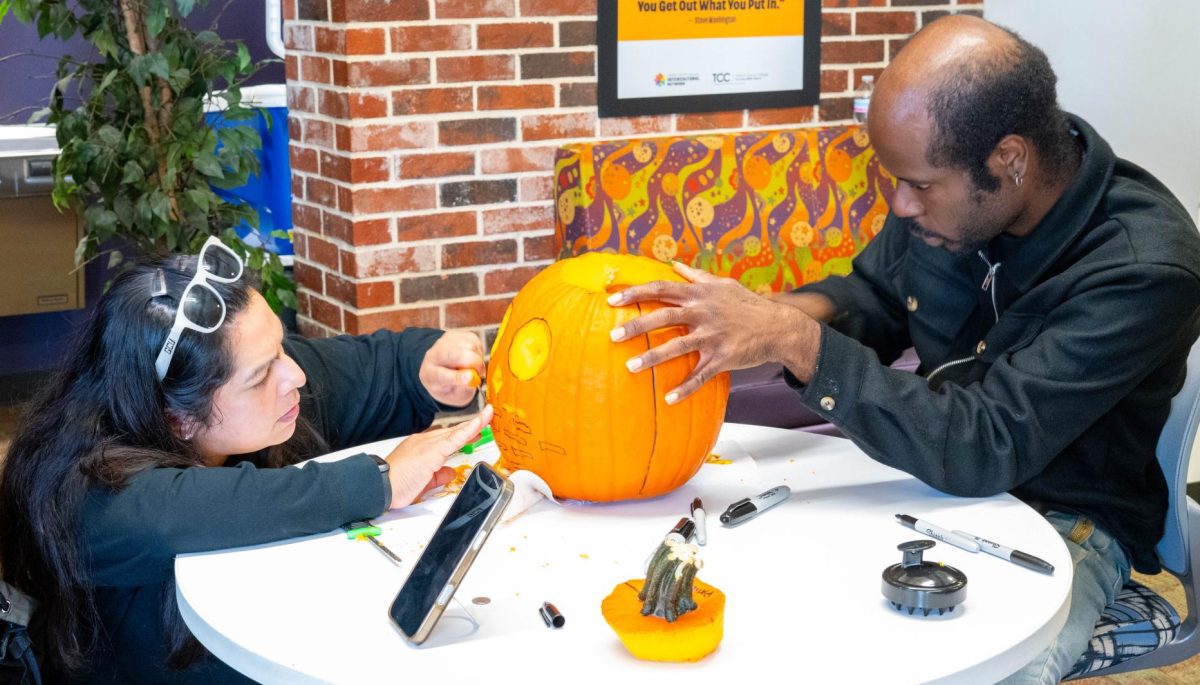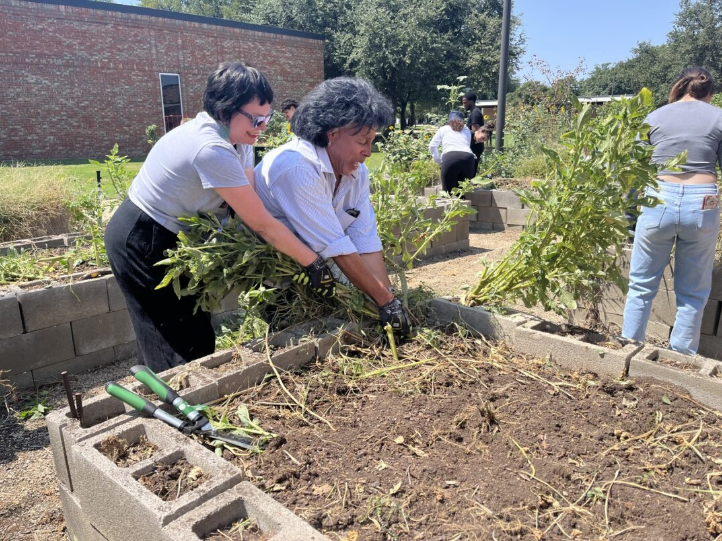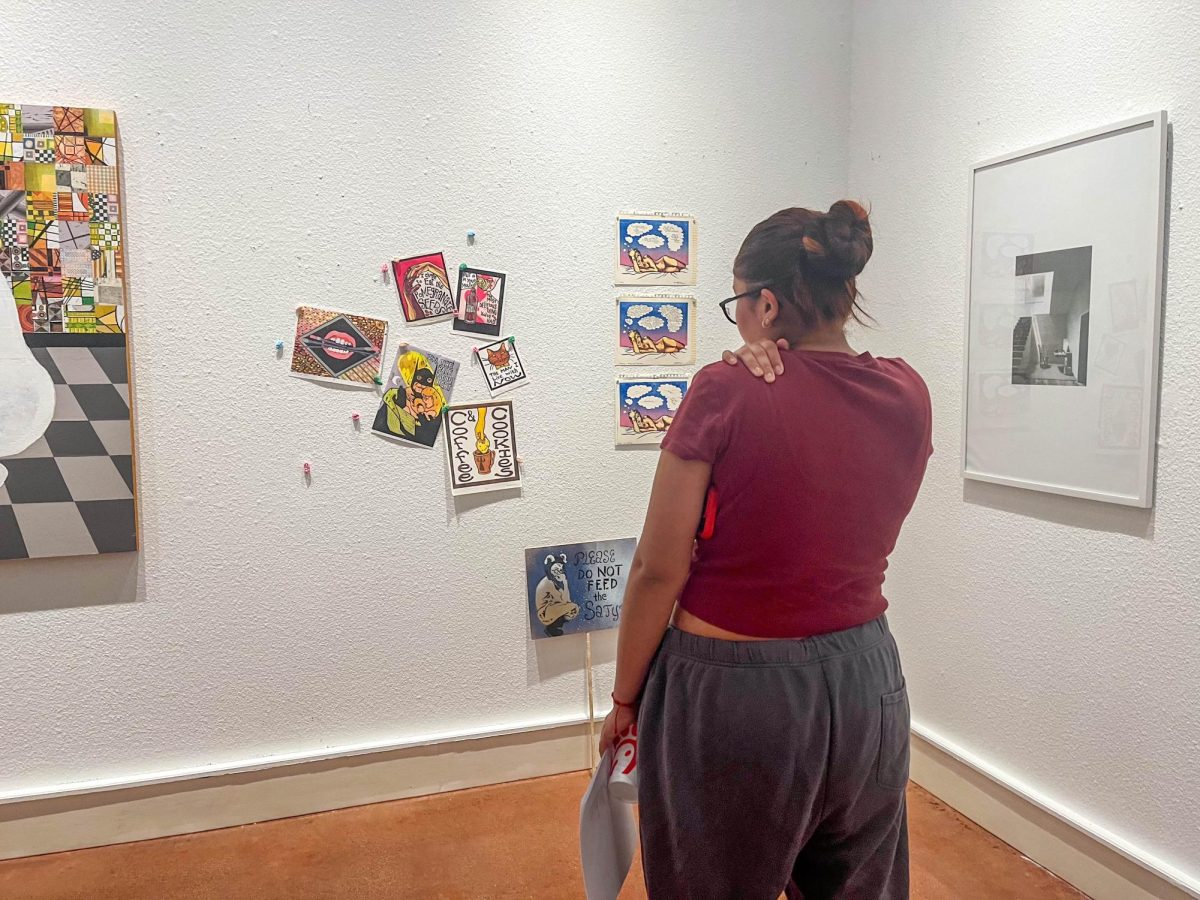CORRECTION: An earlier version of this story included incorrectly misspelled names.
South Campus hosted “A Legacy Through the Decades,” a celebration of TRIO’s 60-year anniversary on Nov. 19.
The festivities included food, music and testimonies from current and former students about the organization’s involvement in helping them through college.
Founded in 1964, TRIO now consists of eight federal student assistance programs serving nearly 900,000 people nationally. Of these, Upward Bound, Talent Search and Student Support Services are available across seven offices for TCC students at South, SE and TR Campuses.
During her speech, TRIO alum Maria Olmos-Maldonado said as a working mother, the program was her lifeline while finishing her degree at Texas Christian University.
“I went there when I didn’t have the internet at home and when I didn’t have a printer to print my homework that I was supposed to turn in. TRIO was there for me,” she said.
Along with helping to supply equipment for her schoolwork, TRIO provided Olmos-Maldonado, currently a grants specialist with the office of grants and compliance at TCC, the emotional support and motivation necessary to finish her education.
“They taught me to be resilient. They taught me to be persistent. They taught me to be brave,” she said. “I felt like I was safe where I was with the TRIO department, and so that is one of the many reasons why I believe in the program.”
TRIO’s website listed Upward Bound’s focus as helping prepare students for college with STEM tutoring and exposure,. TRIO’s educational Talent Search provides students with college tours, counseling and assistance in finding scholarships and completing applications. Student Support Services work directly with those enrolled to provide the resources necessary to complete a college degree or certificate and transfer to a four-year university.
According to TRIO, Congress mandates that two thirds of the organization’s students come from families with income no higher than 150% of federal poverty levels and in which neither parent graduated college.
“TRIO will continue to lead the charge to champion millions of students from underrepresented communities on their academic journey in the years to come,” said Rafael “Ray” Cordero, executive director for TRIO at Texas State University.
Chasity Alexander, the director of TRIO at TR, said she’s witnessed firsthand how the program’s personalized care developed students’ confidence in achieving their educational goals.
“Students come in being unsure, nervous or anxious about their decision to be in college, or feeling like this isn’t a place for them,” Alexander said. “But in TRIO, they get to have a sense of belonging. They get to have a place where individuals know who they are, they know their stories and they’re willing to help.”
Former TRIO student Juan Flores praised the leadership seminars the organization frequently held and recounted the lessons that stuck with him throughout his time in the National Guard.
“Let others hear your voice,” he said. “Because in those areas where you’re not heard, no one will follow. You really have to put your voice out there and be heard.”
Along with inspiring confidence in their students, Flores recalled the seminars covering the importance of making connections among peers that could benefit them later in their careers.
“My major is criminal justice. I want to be a cop and be in SWAT one day. I have friends that want to become lawyers, and one day that relationship is going to be helpful,” Flores said. “I believe that’s what they’re trying to teach us here in TRIO, like trying to make those connections.”
For many students, TRIO’s biggest assistance is their tutoring services. For NW business and TRIO student Norma Garcia, who explained that being an older student made it harder to understand some of the curriculum, TRIO’s one-on-one help ensured she passed her accounting classes.
But what made the program stand out for Garcia were the welcoming employees, with doors always open to lend an ear.
“They’re always willing to listen if you’re having trouble with any of your classes or you think about dropping any of your classes,” Garcia said, “they always want you to go and talk to them before you do any of that. I honestly believe that just having them there to listen, to actually care, to actually put an effort towards pushing forward makes a big difference.”
TRIO’s volunteering in the community was something Garcia took pride in and was the primary motivator in joining the program.
Maria Carbajal, a collegiate early college high school student and member of TRIO, viewed volunteering as her way of repaying them for their part in getting her out of her comfort zone and registering for college.
“This program really helped me grow and get out of my shell because I was able to meet new people from different schools,” Carbajal said. “They were helping me be more open, and I was able to help back.”
However, recent discussions about the potential removal of the Department of Education left many TRIO students and staff unsure about its future.
“Trio was only about 1 billion of the estimated $80 billion that’s in the Department of Education budget,” Cordero said. “The Trump administration had indicated that there would be a – I don’t know what the terms where they were using – but essentially, either overwhelming or dismantling the Department of Education. We don’t know what that will look like. We have no idea.”
Despite Cordero’s fears, South President Dan Lufkin expressed his confidence in the program’s future, stating he foresees it continuing for another 60 years because of the dedication of the staff and administration.
“It works because it’s student-centric,” Lufkin said. “The program puts everything into its students, the resources, the people, the tools that you need to succeed, the technology, the in-services.”




























